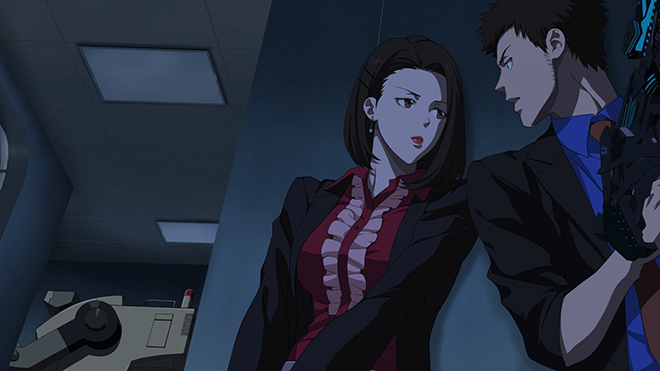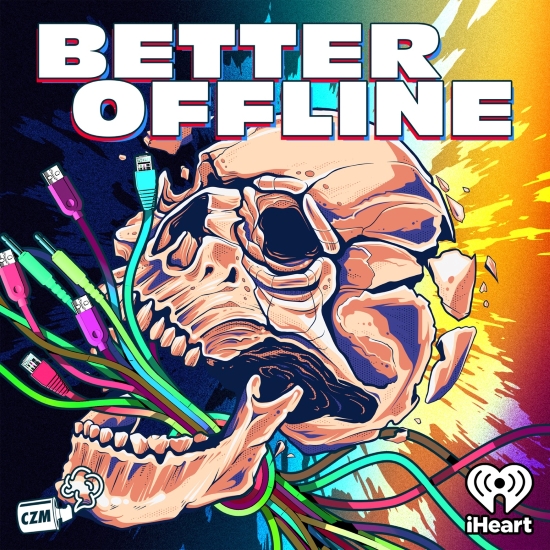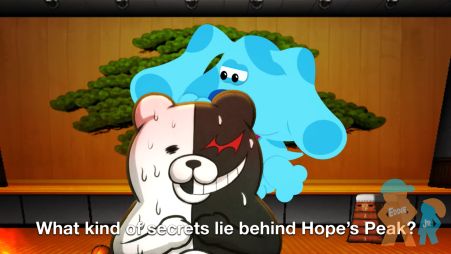Quarantine Control #208: Offline Psycho Accountants

It’s always nice to get the reminder that the United States of America has two justice systems, despite the common pledge that no one is above the law. The key event showcasing this of course involves former president Donald Trump, for whom a court granted his more minor request to delay his bond payment for him and his sons being found guilty of civil fraud through dealings with the Trump Organization. He originally had to pay $454 million bond, where it was — sorry — kind of fun to watch him struggle to make. That’s now been reduced to $175 million, with the actual payment being delayed until April 4th. Sure, he’s still cash poor, but it’s the kind of break he didn’t deserve. Yet, it’s one the rich get all the time.
Geoffrey Barnes
The Accountant (2016)
Source: Apple TV Plus
Episodes: 1 movie (with a sequel on the way)

Nothing quite makes someone want to check out a film like a sequel being announced, with The Accountant being a big recent example for me. Quick research shows how the 2016 movie didn’t get the best critical reception, but more than made up for that with a great audience reception. Movies that receive such a perception tend to be pure fun, though far from highbrow entertainment. The Accountant certainly appeared to be that, with the attractiveness of Ben Affleck playing an autistic semi-accountant for solid representation (not to say he isn’t otherwise attractive), and Anna Kendrick playing one of her then-rare dramatic roles. Fortunately, my expectations were set correctly. The movie was nothing more than entertaining, and nothing less.
The Accountant focuses on Christian Wolff (Ben Affleck), an autistic practicing accountant who makes his real living by taking care of organizations engaged in dangerously fraudulent behavior. He kills the heads of organizations (and plenty of others along the way) before they kill further people in what’s totally not a victimless crime, though he himself is nonetheless a money launderer. This attracts government attention from the likes of the US Treasury department’s Ray King (J.K. Simmons), who tasks ex-criminal Marybeth Medina (Cynthia Addai-Robinson) with finding him before King retires. Wolff finds herself protecting Dana Cummings (Anna Kendrick) along the way. That’s all I’d like to discuss in case someone wats to check this film out.
The Accountant isn’t quite as complicated as it might seem. There’s plenty of grey morality here with the main character being a launderer and killer with a sympathetic disorder, who partially uses his abilities and prior training to take care of others more easily. The fun in the movie comes through how Wolff is matched up with serious opposition through Braxton (Jon Bernthal), who’s operating a security company on behalf of an embezzling individual. It was tough for me, as a huge nerd, to not think this was Batman vs. The Punisher, as Affleck and Bernthal have played both characters, respectively. The movie even has the Alfred to Affleck’s Batman with JK Simmons. The movie is very much not this, though they do have similar sides.
It’s also similar to those by being a fun film. No one should watch The Accountant for a deep introspection regarding how autistic individuals fit into society, with the themes here being included solely for character development purposes through flashbacks and minor present-day scenes. The real attraction is how this particular anti-heroic accountant kills dudes worse than he is. It’s perfectly entertaining, with the solid acting doing plenty of heavy lifting. I’ve seen Affleck in enough movies to know that he isn’t autistic, but he plays the part well. This was also one of the movies to show how Kendrick could handle roles that existed outside of the comedy genre, and she’s never uncomfortable in the role.
But as implied above: No one should expect more than a dumb actioner here. The main character may be an accountant through his day job while investigating an embezzling scheme, but that’s all left in the background compared to the dudes being shot up and character drama. That goes double for the second half of the movie. It’s nowhere close to a deep film, but simply a fun time to spend a Saturday night, as I did. And I don’t regret it.
The ending has me wondering where the second film’s story could go, besides one particular subplot. It’s honestly a real damned shame that Kendrick isn’t returning for the new film, likely due to being too busy with other matters, but Affleck, Bernthal, Simmons, and Addai-Robinson should be good, alongside other actors. Not to say the first movie needed a sequel, which it didn’t. But if it’s just as fun as this one, then it will be nice for another Saturday night, if not quite worth travelling out to theaters for.
Angela Moseley
I’ve been playing the Unicorn Overlord demo on Switch despite having a hard copy of the game on PS5. I suppose I’ll play the game proper whenever I get around to buying my own PS5.
So I’ll talk about another game I’ve played on another Sony system.
Pyscho-Pass: Mandatory Happiness (2017)
Source: PlayStation Vita (also on PS4 and Steam)
Episodes: 1 video game

As I’ve been promising since Quarantine Control #203, I finally completed Nadeshiko Kugatachi’s route in Pyscho-Pass: Mandatory Happiness. Her story really was the more intriguing of the two. It also offered more insight into the game’s antagonist, Alpha. This time around I was actually privy to Alpha’s thoughts from a first-person point of view versus a third-person point of view. Also, I just had more overall access to information. Having been given a full view through Kugatachi’s eyes, it actually makes me feel worse for Tsurugi. The poor guy really is left in the dark and struggling to figure things out on his own.
Kugatachi suffered an accident that left her lacking memories other than her name. She had the aptitude to become an Inspector for the Public Safety Bureau in Tokyo, so she joins. On the first day she’s assigned to Division 1 along with the new Enforcer, Takumi Tsurugi. The division is immediately assigned to a case regarding a kidnapping in Sado Marine City. Upon arriving and solving the case, they learn that someone else enabled the kidnapper to carry out his plans. Shortly after the case is solved, the team receives another case regarding a mother and child who have gone missing. It isn’t long before the Division 1 ties the case back to the original kidnapping, and another case involving a stolen medical cyborg that is being piloted by a rouge AI program calling itself “Alpha.”
After playing through Psycho-Pass five times in total, I’ve learned that it is possible to completely fail missions by making the wrong decisions, or taking too long to arrive at the correct conclusion. By that I mean, spending too much time investigating or checking out various areas instead of acting on the clues given and hurrying to a scene. Cases go well when causalities are kept to a bare minimum and the culprits don’t have to be executed with Dominators. Or you can go full ACAB and suppress everyone including the people you’re supposed to be helping. (Now, I may have tossed a stun grenade or two into a group of teenagers for efficiency’s sake.) Depending on your actions, you will receive different cut-scenes and your character’s hue can darken. Bad decisions give this melancholy game an even darker tone. That said, I generally avoided bad outcomes because I didn’t want to run into deliberately bad endings.
Like with Tsurugi, Kugatachi is her own fully developed person and as the player you’re just guiding her actions. Unlike her Enforcer counterpart, this Inspector can experience events that can trigger her memories, and her hue can be clear or clouded. She also has eight different endings, but I only managed to obtain four. Two of those endings were obtained with the help of a flowchart, so I could land on paths that would take me to a desired ending. I realized I needed the guide otherwise I’d have to replay the game many more times. Even with a fast-forward option, new paths meant you couldn’t speed through dialogue and even though the ending path was different in some way, the overall scenario was the same. Seeing larger events played out multiple times does get boring really fast. Your choices don’t really have meaningful changes until the final case in the game, other than the chance to hang out with a character in Division 1 during the last half of the game.
There is an option to keep Kugatachi’s Pyscho-Pass hue clear and to recover her memories rather quickly. Once she realizes her past and what she was doing before she lost her memories, the game’s outcome is on a set path. She’s pretty much all in with the Sybil System, and because she lacks emotions to a degree she can understand and support the system. (She’s not completely emotionless, as she was in love at some point.) It is then that you learn she’s Criminally Asymptomatic– which means her hue never becomes cloudy no matter what she does, Nor does her Crime Coefficient ever leave the double digits. This puts her in the company of the anime’s first season villain, Shogo Makishima and the third season’s Inspector, Arata Shindo. Being Criminally Asymptomatic doesn’t make a person inherently evil, but they can do awful things without being punished by Sybil.
There’s also another option to deliberately make choices to darken Kugatachi’s hue. If her memories aren’t recovered by a certain point in the game, she’ll never remember who she was and will eventually become a latent criminal while being demoted an Enforcer. On the darkened hue route, some choices you could previously make with a clearer hue are completely taken away, as if the game is trying to put you on another path. You can also mostly darken Kugatachi’s hue, have her recovery her memories, and see her hue completely become clear again. The difference is this time around she feels emotions and isn’t as eager to go along with every decision Sybil makes. Also, by restoring Kugatachi’s memories at any point in the game, her connection to Tsurugi becomes obvious. Depending on your choices she may or may not choose to reveal what she knows to him.
I received one particular ending where she and Tsurugi ultimately decide to abandon their duties as Public Safety Bureau officers, and leave Japan completely. I won’t spoil the ending or what leads up to it, but I found the option to just leave to be unintentionally funny. It’s the ultimate “Fuck you, I quit!” Generally, Tsurugi’s endings seemed focused on him finding out what happened to Yukari, continuing the status quo without ever learning the truth about the woman he loved, or being given the chance to rehabilitate himself by becoming an Inspector. Meanwhile, Kugatachi’s endings focus on her helping Sybil to help (and/or control) society in general while sacrificing her personal happiness, continuing the status quo, or seeking her own personal happiness by abandoning the Sybil System (and Japan) entirely.
After playing multiple hours and seeing multiple endings in Psycho-Pass: Mandatory Happiness, I can say it is an enjoyable game for fans of Psycho-Pass. I can’t really recommend this game to anyone without them having seen at least the first season of the anime. There is a ton of lore to enjoy, and the game-only characters are a lot of fun. That said, having to replay sections of dialogue multiple times (even with a fast-forward option) does become tiresome. I wish there were options to completely skip sections you’ve replayed like in Zero Escape: Virtue’s Last Reward. I’m still interested in seeing a different ending with Tsurugi’s route, but after running through parts of the game on Kugatachi’s route four times, I’m not ready to immediately jump back in.
Joseph Daniels
When I first got into playing video games as a hobby, it was due to hearing from Angela about a video game she was passionate about and it got me wanting to try it for myself. I played Chrono Trigger and then branched out to other games in the RPG genre, devouring several from the NES and SNES era before eventually receiving a PlayStation and Final Fantasy VIII from a friend who I’ve since lost touch with. I had emulated the SNES and NES games I played, and I both purchased and received as gifts the PlayStation games I played, including what became my all time favourite game, Final Fantasy IX (a gift from Angela).
The first console I ever purchased for myself was a used PlayStation 2, and I purchased so many games for it, both new and used, that I’m still working my way through them. It was one of the greatest consoles of all time for games of all genres. There are PlayStation 2 games that are still in print. I could buy a brand new copy of Resident Evil 4 right now. Not the remake, the original.
One of the best things about the PlayStation 2 is that, despite that there was a hard drive attachment and it was possible to take the console on-line, so very few games actually made use of such capabilities that basically only one game released in North America ever received patches and updates from the Internet, and 34 others utilized the hard drive in one way or another. That’s on a console with thousands of games over ten years of development. (To be fair, the number of games which used the hard drive and the on-line functionality was higher in Japan.)
My excitement for video games carried over into the next generation and I followed Final Fantasy onto the PlayStation 3, the first console that I ever bought new. In fact, this was the generation that I bought all three major consoles, for there were games I wanted on all three. Unfortunately, this generation was rough. Even the announcements at E3 were rough. The PlayStation 3 became a joke when it was revealed to be incredibly expensive compared to the previous two PlayStations.
This was the first truly on-line generation, and it was an optimistic time where even independent developers could have a seat at the table. This should’ve meant there’d be even more potentially good games than the previous generation, but things didn’t work out the way we were originally led to believe. Sure, there were good games during this generation, especially from the indie developers, but this was where the AAA developers started to run themselves into the ground. I bought Final Fantasy XIII on day one and initially liked it, but looking at it more critically later, it is a bit of a rough game. In fact, many of the RPGs on the PlayStation 3 were nowhere near the level of quality of the RPGs on the PlayStation 2, and maybe someday I’ll dive further into this generation and explore some really incredibly rough games for the blog. Many good RPG series actually died on the PlayStation 2 and never showed up on the PlayStation 3. Kingdom Hearts survived to the present day but even that series skipped over the system aside from releasing ports of prior games. You could probably count on one or two hands the number of RPG series that appeared on the PlayStation 2 and which received new games on the PlayStation 4 and/or 5.
As we move more towards the present day, it’s like gaming is getting worse, with games getting more expensive, introducing more ways in which publishers are trying to turn us into sources of infinite money for them and the games we do get are designed to funnel us to cash shops. For every complete experience like Kingdom Hearts III, there are hundreds of games like Overwatch II, launching with money as its main goal and delivering a good experience being a distant speck on the horizon. Even the complete experiences chased trends, with Final Fantasy XV trying to do the open world thing and failing to put anything interesting in that world (it wasn’t even complete anyway, with DLC and patches being added to put content into the game that should’ve been there from day one).
The industry has been hit with massive layoffs, but most of the companies firing people are some of the most profitable companies in the industry. I’m finding myself seeing less and less games being made to be like the ones that attracted me into the hobby, and it’s getting harder to want to be like the consumer I was two generations ago, buying all three major consoles because of the wonderful experiences each console can bring. The current Xbox console doesn’t have enough games on it that I can’t also buy on the PlayStation and if you’re a game like Cassette Beasts and you’re releasing on everything except PlayStation systems, you’re leaving money on the table. If I can’t run your game on my PC and the one console I have is the one you refuse to release your game on, I’ll just take my money elsewhere.
This isn’t just a problem in gaming, it’s a problem everywhere in tech. It’s hard to get excited for what’s on the market any more. I was recently listening to the latest episode of a podcast Angela recommended last month and it contains some concrete examples of how publications are being ruined by tech companies. The podcast didn’t touch on it, but the exact same thing happened with The Escapist. It was revived a few years ago after losing its way, and it was looking like an actual, honest to goodness success story. Greedy people can’t leave well enough alone, though, and the end result of corporate greed was the complete gutting of the video department. The site is trying to rebuild it now, and it’s too soon to tell if the executives in charge learned their lesson. They don’t even have Zero Punctuation running any more, so whatever new ideas get introduced don’t have any association with an established brand to fall back on. I wish the people in charge of rebuilding a lot of luck, because the executives have already demonstrated that they’re willing to drive everyone off a cliff if their expectations aren’t met. I don’t trust that they won’t do it again.
Better Offline (2024)
Source: iHeart, any podcatcher
Episodes: they’re up to 7 now

So I’m just going to leave this second recommendation here because the latest episode is a very important one to listen to and got me thinking of my history with video games. I wonder if my Retrospective articles are just my way of reliving the glory days of the medium, when money hadn’t ruined everything about the hobby I like.
It feels bad to think that people without morals can enter the tech industry, scam it out of billions with promises that this or that will change the industry and then ride off into the sunset with their ill-gotten gains. Not every scam pays out and there are people who have still lost the billions they tried to gain, like a dog with a bone looking at his reflection in a lake. Still, some scams pay out so well that it makes you wonder if it’s even worth trying and failing to make an honest living. If there’s more financial incentive to be an asshole, why not just be an asshole?
This Week’s Short Film
The Cat Came Back (1988)
Well, this is where the short film would’ve been, but the official upload from the National Film Board of Canada (and I really should’ve expected this) is region locked to disallow Americans from watching it. This is actually a refreshing change for me since I’m usually on the receiving end of such shitty treatment, but I want people outside of Canada to be able to watch this. It was nominated for an Academy Award and everything. And yes, I’m sure there are other channels who have uploaded it and who don’t restrict its access, but I prefer the official upload whenever possible. I really hate region locking whenever Americans do it to me, and now that I’ve found an instance where Canadians did it to Americans, it’s even worse. Instead of a short film, I’m just going to leave a short mini protest of region locking instead.
We’ll see if our esteemed former president suffers from any of the consequences that he’s deserved in due time, though the chances of this happening are running short. The election is also looking tighter than it should be considering that one of them is suffering from predictable legal woes. What a great country we have, in a great world. Until next week.





